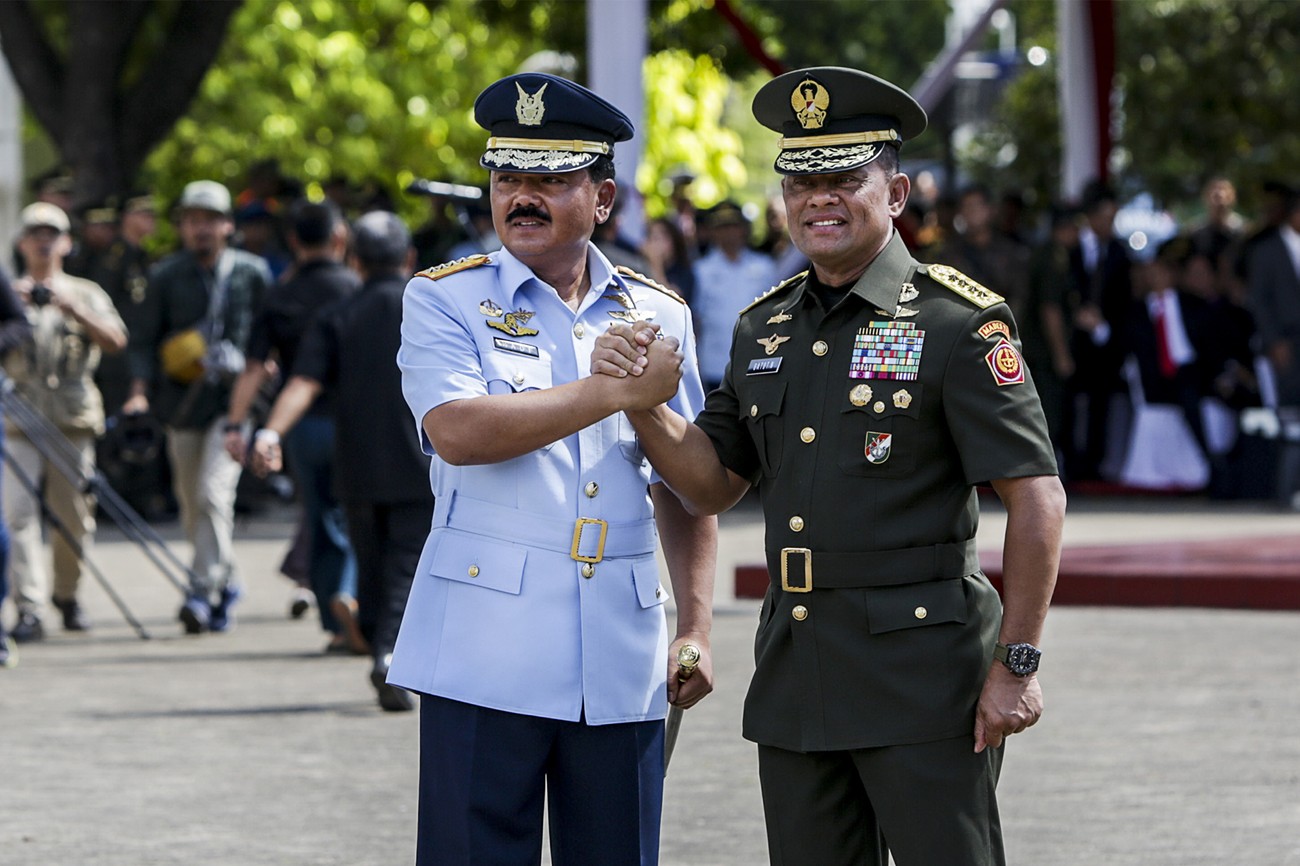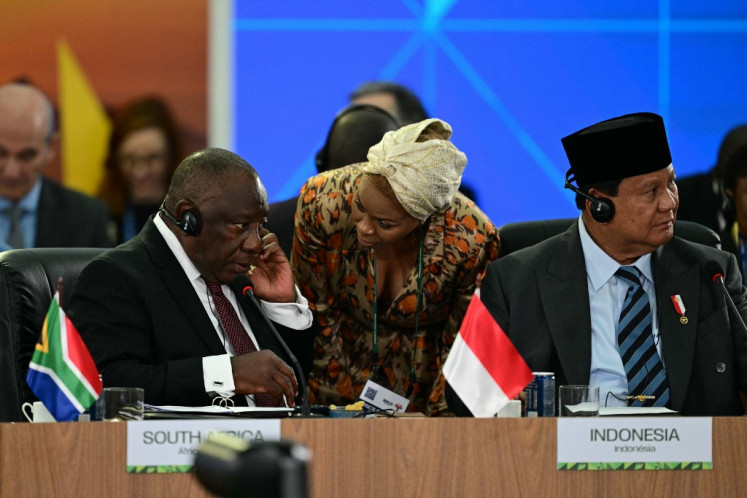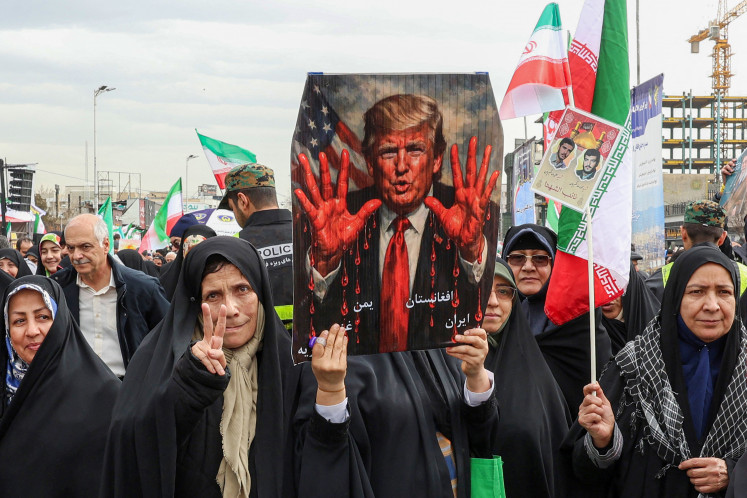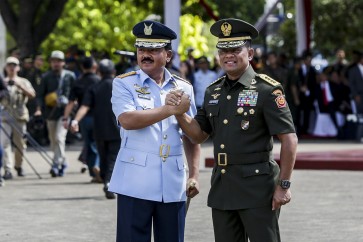Popular Reads
Top Results
Can't find what you're looking for?
View all search resultsPopular Reads
Top Results
Can't find what you're looking for?
View all search resultsInsight: Can Hadi Tjahjanto juggle competing forces?
It’s not clear how an Army-dominated TNI would react under an air chief marshal that has a different organizational culture and outlook.
Change text size
Gift Premium Articles
to Anyone
L
ast weekend, Air Chief Marshal Hadi Tjahjanto became the new Indonesian military (TNI) commander. He was nominated by President Joko “Jokowi” Widodo on Dec. 4 and was sworn in four days later.
Whatever expectations we might have, we need to bear in mind that Hadi would need to juggle several competing forces and structural barriers. From within the TNI, whatever policy agenda he might have, he needs to first appoint trusted officers to fill the senior ranks of the military leadership, perhaps away from his predecessor’s appointees.
This is not a straightforward process, however. For one thing, despite his relatively positive track record, some within the Air Force were “surprised” at Hadi’s rise. This is partly because of a peculiar Air Force culture that favors fighter jet pilots (Hadi flew light aircraft) and partly because his flag-rank postings before becoming Air Force chief were outside the TNI, including with the National Search and Rescue Agency, the President’s Office and the Defense Ministry.
For another, the TNI has not had an air chief marshal leading it for four years (Hadi is 54 years old and won’t retire until 2021); the TNI has only had one air chief marshal as its chief since 1998, Djoko Suyanto, who had one of the shortest post-Soeharto tenures at 22 months.
It’s not clear how an Armydominated TNI would react under an air chief marshal that has a different organizational culture and outlook. The five priorities Hadi outlined during his legislative hearing — regional order, cyberwarfare, terrorism, China’s rise and maritime security — stand in contrast to his Army predecessors’ focus on internal threats and “proxy warfare.”
That Army personnel dominate the TNI structure and ranks will pose another set of challenges. Any agenda to overhaul key policies would need to account for the Army’s organizational interests. It might also take some time to eliminate the lingering antiquated notions that “blame” the Air Force for its role in the 1965 attempted coup and its aftermath.
In any case, Hadi needs to carefully balance his senior officer appointments. On the one hand, he needs to appoint trusted officers — likely from his own academy class of 1986 — without ruffling too many feathers, as his academy “seniors” (classes of 1983-1985) would likely be active for another few years. But he also needs to pave the way for his larger “junior” academy classes — particularly from 1987 and 1988 — to move up in the ranks.


















